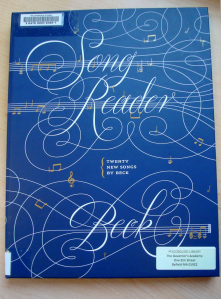Pesky Library
Rock, Goth, Blues, Punk, Rap and Hip-Hop. All these different musical genres have one thing in common: they are part of the changing landscape in the music industry and the apparent “death” of physical music.
Spotify and Pandora Radio have become the new leading ways of listening to music. For those who do not know, Spotify is a music streaming service available for computers running with Linux, Mac OS X and Microsoft Windows.
Pandora Internet Radio streams music with a recommendation service. The user enters an artist selection and the service automatically plays songs by that artist and his or her specific genre. If the user does not like the recommended song, that user has the ability to pass over a certain number of songs. If the user likes the song recommended, they can give it a thumbs up which will help formulate the recommendation and gear it more toward the users interest.
In an email discussion, Fordham Professor of Communications and Media Studies, Michael Plugh discussed how the physical world of music is ever changing and how people no longer find the physical use of music as the best way to listen.
“The magnetic reel-to-reel of the cassette tape lives on only in nostalgia,” said Plugh. “We’re even seeing a diminished sense of importance in the “player” itself, as our music is increasingly obtained online, in digital form, and stored via cloud computing, remotely.”
Many have moved away from a world of listening to music together and into a more personalized world of music.
“When we developed the ability to record sound, music was no longer solely a collective, participatory activity. We used to sing together, play instruments together, and listen to music together,” said Plugh.
Since music has become easily accessible, many believe that there is no need for the physical CD, Walkman or record.
“We can access music via any of our multiple interfaces, be they desktop, notebook, tablet, smartphone, and so on,” said Plugh. “The notion of the album is diminished, as we increasingly seek to customize the songs we like.”
Some believe that there are also pros and cons to Spotify and Pandora. With a loss of a communal activity, these programs are making music easy to manipulate and customize.
“It’s difficult to say which aspects of our new music experiences are pro or con, since it depends largely on what kind of music experience you prefer, but we might be able to say that with our customizable, material-free relationship with music we gain control over our playlist, while slipping further from the communal experience of music that characterized most of human history,” said Plugh.
Writer and professor of Communications and Media Studies at Fordham University Paul Levinson believes that the fall of physical music has had a positive effect on the way people listen to their music.
“The digitalization of music and the decline of physical music devices such as CDs is a big step forward for popular music and creativity,” said Levinson.
Online music allows for people to go from a nobody to a somebody. Rather a waiting to be discovered, people have the ability to make themselves be discovered.
“Rather than needing a record company to sign you up and foot the bill of CD or cassette production, the recording act can get its recordings right out to a distributor like Pandora or Spotify,” said Levinson. “This is great for both the public and the recording artist.”
Not everyone agrees that the digitalization of music has been a positive thing. Caitlin Tyrell, FCRH ‘14 suggests that the old-fashioned, listening to CDs is a better way to go about choosing music.
“CDs are better than Pandora because you know what you’re going to listen to, sometimes you just want to listen to one artist rather than an entire genre. Also, the few times I have chosen to use Pandora, the music could keep freezing and I would have to listen to advertisements between songs,” said Tyrell.
Alexandra Kreitman, FCRH ‘14 discussed the accessibility and convenience of using Spotify or Pandora over the old-fashioned CD.
“Pandora and Spotify” require minimal input from you, are easy to use, and are efficient at finding related music that I am likely to enjoy,” said Kreitman.
Regardless of the convenience these new ways of listening to music are, Kreitman argues that it makes the experience not as pleasant due to the annoyance of uninteresting advertisements.
“However, these streaming services have some shortcomings. Unlike a CD, you cannot play a specific artist or song right away. Free Pandora and Spotify accounts play fairly repetitive commercials, which are not very interesting. Although it has become less practical to handle CDs, the audio quality remains better,” said Kreitman.





